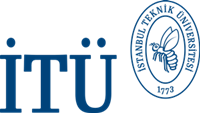 Click for detailed student count.
Click for detailed student count.
 Program Profile
Program Profile
The ITU-MSU Bioengineering Program is an international joint undergraduate program between Istanbul Technical University (ITU) and Montana State University (MSU), based on a year-sharing model. Approved by the Turkish Council of Higher Education (YÖK), the program is a tuition-based, dual-degree initiative aimed at educating internationally qualified bioengineers in the field of bioengineering.
Students who successfully complete the program are awarded two bachelor's degrees: one from the Bioengineering Program of Istanbul Technical University and another from the Bioengineering Program of Montana State University.
 Registration Requirements
Registration Requirements
Admission is carried out in accordance with Article 4 of the Istanbul Technical University Double Degree International Joint Undergraduate Programs Education and Training Regulation.
Click here for the relevant regulation.
 Program Learning Environments
Program Learning Environments
The Bioengineering Program, established within the Faculty of Chemical and Metallurgical Engineering at Istanbul Technical University (ITU), is a multidisciplinary program conducted with the participation of faculty members from the Departments of Metallurgical and Materials Engineering, Chemical Engineering, Environmental Engineering, Food Engineering, and Molecular Biology. Students enrolled in this program will benefit from the laboratory facilities of the participating departments, which are equipped with modern infrastructure and state-of-the-art equipment, in line with contemporary educational standards. The engineering departments involved in the program are accredited by ABET (Accreditation Board for Engineering and Technology), a well-recognized accreditation body in the United States. Further information about the departments and the university can be accessed at www.itu.edu.tr.
Montana State University, founded in 1893, is the largest university in the state of Montana, USA. Located in Bozeman, a quintessential university town with a population of 30,000, the campus offers a safe and supportive environment for both living and learning. Montana State University offers over 100 undergraduate and nearly 60 graduate and doctoral programs, serving a student population of approximately 12,000, including 400 international students from 75 different countries. It is ranked among the top 100 national universities in the United States. The university campus is situated approximately 150 kilometers north of the world-renowned Yellowstone National Park. More detailed information about Montana State University can be found at www.montana.edu.
 Program Fees
Program Fees
 YKS Quotas, Student Success Ranking, Minimum and Maximum Scores for the Last Five Years
YKS Quotas, Student Success Ranking, Minimum and Maximum Scores for the Last Five Years
 English Proficiency
English Proficiency
 Regulations and Guidelines
Regulations and Guidelines
 Academic Calendar
Academic Calendar
 Course Plans, Prerequisites and Course Equivalence
Course Plans, Prerequisites and Course Equivalence
 Course Information
Course Information
 Course Schedules
Course Schedules
 Course Adjustment and Exemption Procedures
Course Adjustment and Exemption Procedures
 Program Educational Objectives
Program Educational Objectives
Bioengineering graduates will:
1. Have fundamental engineering skills, current technical knowledge, and professional skills in national and international organizations in the field of bioengineering.
2. Develop sustainable solutions to engineering problems and be critical, creative, and independent thinkers who advance their field.
3. Accept ethical responsibility for the social and environmental impacts of engineering practices.
4. Recognize the importance of lifelong learning and improve themselves continuously.
 Measurement and Evaluation
Measurement and Evaluation
Student success is evaluated in consideration of Articles 20, 21, 22, 23, 24, and 25 of the Istanbul Technical University Undergraduate Education and Training Regulation.
Click here for the relevant regulation.
 Internship
Internship
This program 20 days contains mandatory intership.
 Graduation Requirements
Graduation Requirements
Graduation procedures are carried out in accordance with Article 20 of the Istanbul Technical University Double Degree International Joint Undergraduate Programs Education and Training Regulation.
Click here for the relevant regulation.
 The Awarded Degree and Title
The Awarded Degree and Title
Degree : Bachelor of Science Title : -
 Program Employment Opportunities
Program Employment Opportunities
Bioengineers can be employed in the industrial fields such as health care, medical devices, and drug research in different departments such as research and development, quality control and marketing besides academic career in universities.
 Number of Graduates
Number of Graduates
Bioengineering (Montana State University) International Joint Degree Programmes (%100 English) Graduate Statistics (Last Five Years)
| Year | Number of Graduates |
| 2020 | 8 |
| 2021 | 4 |
| 2022 | 9 |
| 2023 | 5 |
| 2025 | 3 |
 Program Outcomes
Program Outcomes
P.O.1 an ability to identify, formulate, and solve complex engineering problems by applying principles of engineering, science, and mathematics
P.O.2 an ability to apply engineering design to produce solutions that meet specified needs with consideration of public health, safety, and welfare, as well as global, cultural, social, environmental, and economic factors
P.O.3 an ability to communicate effectively with a range of audiences
P.O.4 an ability to recognize ethical and professional responsibilities in engineering situations and make informed judgments, which must consider the impact of engineering solutions in global, economic, environmental, and societal contexts
P.O.5 an ability to function effectively on a team whose members together provide leadership, create a collaborative and inclusive environment, establish goals, plan tasks, and meet objectives
P.O.6 an ability to develop and conduct appropriate experimentation, analyze and interpret data, and use engineering judgment to draw conclusions
P.O.7 an ability to acquire and apply new knowledge as needed, using appropriate learning strategies
 Higher Education Program Atlas
Higher Education Program Atlas
 Turkish Qualifications Database
Turkish Qualifications Database
The qualification has not yet been incorporated into the TYÇ.
 Program Coordinator
Program Coordinator
Click for detailed student count.
